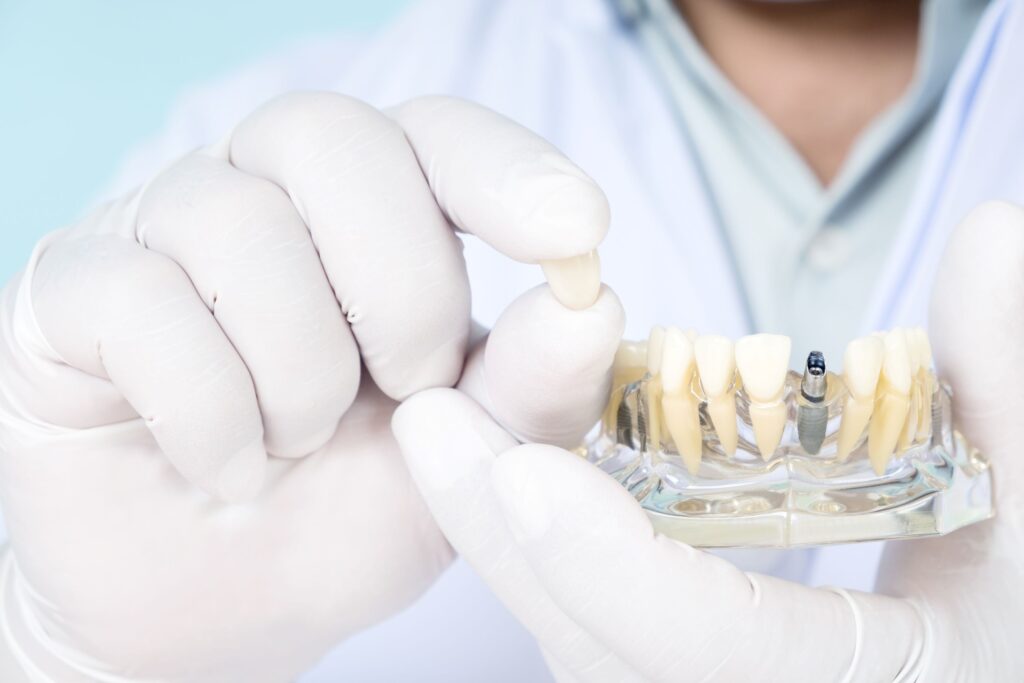
Many experts consider dental implants to be the ideal way to replace missing teeth because, unlike dental bridges or dentures, they’re placed directly into your jawbone. As a result, they’re usually stronger and longer-lasting than the alternatives.
However, you must care for them correctly to continue enjoying their many benefits, and some patients have questions about what that means. For instance, it’s natural to wonder whether your new teeth can develop cavities or how to prevent potential problems. Continue reading to learn more about it!
What Are Dental Implants Made From?
Dental implants include three main components: the support rod that’s surgically embedded in your jaw, the connecting abutment piece, and the dental crown (or other appropriate restoration) to close the space(s) in your smile.
The screw that’s inserted into your jawbone is usually made from titanium, a biocompatible metal known for being lightweight but strong enough to withstand the pressure of daily biting and chewing. It can also be made from Zirconia, a resilient ceramic alternative. The abutment will likely also be made from one of these materials.
Then, the tooth-shaped portion is usually created from durable ceramic or resin that reflects light like enamel and can be customized to match your natural teeth for seamless results.
Can Dental Implants Develop Decay?
Because your restorations aren’t made from the same organic components as your enamel, you don’t need to worry that it will develop decay. But that doesn’t mean that you no longer need to be concerned with your dental health. Neighboring teeth can still get cavities that can spread to your gums or jawbone if they go unaddressed. Over time, this can erode the foundation of your mouth, contributing to additional tooth loss.
Not only that, but the leading cause of failure is a progressive form of gum disease called peri-implantitis. Thankfully, these concerns can usually be avoided with proper preventive care.
How Can I Maintain My Dental Implants?
Cavities and gum disease occur when bacteria in your mouth form plaque that can penetrate your enamel and connective tissues to cause harm. Brushing and flossing twice daily removes unwanted germs and residue buildup, significantly decreasing the likelihood of experiencing oral issues.
You should also visit your dentist every six months for a routine checkup and cleaning. This allows them to monitor your condition so they can catch and treat areas of concern, like thinning enamel or swollen gums, before they progress.
Implementing a consistent dental hygiene routine can keep your implants in great shape so you can enjoy your beautifully restored smile for years!
Meet the Author
Dr. Tarangini Suggala takes pride in helping families improve their lives by enhancing their dental health. She earned her first dental degree in India, where she practiced for three years before moving to the U.S., and then graduated from the Boston University Henry M. Goldman School of Dental Medicine. Today, she takes the time to get to know her patients so she can tailor treatment plans to their unique needs. Plus, she has the in-depth training and state-of-the-art experience to place and restore dental implants in-house. You can request an appointment on the website or call (972) 446-1111.
